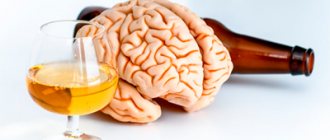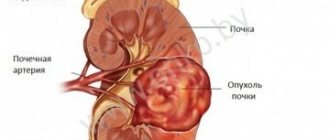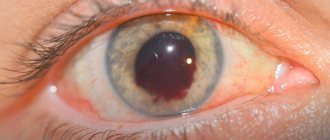Severe disorders of higher nervous activity always accompany alcoholism. Dementia is no exception. In the absence of adequate therapy, the patient completely loses the ability to function fully.
The disease is characterized by the highest degree of impairment of mental (cognitive) functions, caused by the development of a persistent addiction. The patient loses normal perception, thinking, counting, speech, attention. Dementia is not an independent disease and develops secondary.
For persons who are alcohol dependent and with suspected dementia, it is necessary to organize an examination by a psychiatrist-narcologist. The specialist will assess the limitation of mental abilities using questionnaires and scales.
Kinds
Depending on the nature of the brain damage, the disease is usually classified as follows:
- Cortical form - the cerebral cortex suffers.
- Subcortical form - there are disturbances in the connection of the subcortical formations with the cortex, mainly the subcortical formations are affected.
Forms of the disease:
- Lacunar – characterized by isolated lesions of structures.
- Total – the frontal lobes of the brain suffer, which leads to a complete collapse of the personality core.
By severity:
- Heavy.
- Moderate.
- Easy.
What forms of dementia exist and what factors provoke its development?
Most often, the etiology of dementia is associated with Alzheimer's disease. Its share reaches 70% of the total number of cases. By the way, now around the world approximately 50 million people are affected by various types of this disease, and the increase in cases reaches 7.7-10 million per year. There are other forms of dementia - infectious, vascular, hypovitaminous, caused by a deficiency of B vitamins (thiamine, B12, B3) and folic acid, metabolic (hypo- and hyperthyroidism, dysfunction of the parathyroid glands, liver and kidneys), as well as the dementia we are considering alcoholic.
It should be noted that there are practically no pure forms of dementia. Usually they are intertwined and develop as a chain reaction with more and more new organs and systems being drawn into the process. For example, alcoholic dementia occurs with atherosclerosis of blood vessels, leading to their narrowing. This leads to hypertension (increased pressure), insufficient oxygen supply to cells and tissues. The neurons of the cerebral cortex, as well as the cells of the liver and kidneys, are especially sensitive to a lack of oxygen. This process ends with circulatory disorders in the brain, destruction of nerve cells, and damage to the cells of the liver parenchyma and kidneys. Ultimately, destructive and degenerative phenomena in these organs become irreversible.
How much alcohol can you drink safely for your health? Read our article.
Causes
Long-term exposure to alcohol on the body contributes to the development of causes that provoke the formation of dementia:
- Vascular damage – cerebral blood supply suffers. (more details here)
- Chronic cerebral ischemia. Against the background of alcohol addiction, the brain experiences constant hypoxia and lack of nutrients. As a result, organ tissues degrade.
- Arterial hypertension is a constant or periodic increase in blood pressure.
- Narrowing of the arteries supplying the brain - atherosclerosis, stenosis.
- Episodic acute disruptions of cerebral circulation. Foci form in the brain that are unable to perform their functions.
- Neurodegenerative diseases (Parkinson's, Alzheimer's, Pick's disease).
- A general metabolic disorder caused by metabolic disorders and constant intoxication.
- Complications of renal and liver failure (for example, alcoholic liver disease).
Causes of alcoholic dementia: how does the disease appear?
Alcoholic dementia develops gradually, and the main reason for its appearance is the constant craving for alcohol. Drinks containing alcohol, after entering the body, begin to have a detrimental effect on it. Alcohol spreads throughout the body, it also reaches the brain, as a result of which nerve cells are destroyed and mental activity deteriorates.
Diseases that increase the risk of developing alcoholic dementia are:
- traumatic brain injuries;
- atherosclerosis;
- diabetes;
- cerebral ischemia;
- renal failure;
- Parkinson's disease.
The peculiarity of alcoholic dementia is that it develops gradually, it will take years. At the initial stages of this disease, you can cope with it without the help of specialists and return to the physiological state that was before. If treatment is not started at an early stage, dementia will lead to irreversible consequences.
Physiological manifestations of the effects of alcohol on the human brain:
- memory problems (both short-term and long-term);
- constant state of anxiety, panic;
- the occurrence of psychoses, hysterics:
- complete collapse of personality.
Every year the consequences will be more and more noticeable, since continued alcohol consumption will lead to damage to the frontal lobes. Factors that increase the development of dementia and accelerate its progression are also metabolic problems and cirrhosis of the liver. These diseases cause alcohol to have a stronger effect on the body. The development of dementia is also provoked by:
- lack of daily routine (lack of sleep, lack of proper rest);
- poor nutrition;
- smoking;
- stressful situations (experiences make the body weakened, they also increase the amount of alcohol consumed).
In order not to provoke the development of alcoholic dementia, it is necessary to get rid of other bad habits , establish a daily routine and not be nervous about what is happening in life.
At the same time, a person who is faced with alcoholic dementia rarely realizes the need to curb the development of the disease, which leads to disastrous consequences.
What processes are occurring in the patient?
Depending on the form of the disease, the following negative conditions progress:
- Toxic substances and products of alcohol metabolism act on brain structures. The organ loses full physiological functioning.
- Mass death of neurons and neuroglia occurs. Higher brain functions begin disintegrative activity (this can lead to alcoholic neuropathy).
- Damage to the frontal lobes caused by insufficient nutrition of the organ and loss of thiamine.
- Dysfunction of the peripheral nervous system.
- Acceleration of degradation and aging processes.
- Development of mental disorders, psychoses, depression, anxiety, apathy.
- Complete personality degradation.
All patients with dementia are alike. They often change their profession, place of employment, stop working and become dependents. Systematic drunkenness forces them to sell property and clothing, and social degradation progresses.
Symptoms and signs
The symptoms of such conditions are revealed as follows:
- Memory impairment. The patient begins to experience mild forgetfulness. Memory for past events or current moments is gradually lost. The patient may forget previously familiar faces and things.
- The patient's thinking becomes slow and unclear. As the disease progresses, his ability to perform combined motor actions - tying shoelaces, brushing teeth - is impaired.
- Apathy is a lack of motivation to implement actions.
- Speech disorders , including lack of understanding of the native language, slurred speech (dysarthria).
- Cognitive decline (dementia).
Against the background of a complete refusal to drink alcohol, regression of dementia is possible . Good nutrition and a normal lifestyle almost completely restore cognitive functions.
Consequences
Relatives and friends of persons with alcohol dependence are advised to take into account the following information:
- The main consequence of alcoholic dementia is complete maladaptation of a person.
- The patient is unable to adequately communicate with others and lead a full life.
- Relatives of an alcohol-dependent person need to provide him with timely help.
- At the first signs of addiction, it is recommended to seek qualified help from narcologists.
- By inviting a specialist to your home, you can prevent the development of dementia and save the patient from addiction.
- It is necessary to understand that with such a diagnosis a person can live an average of 4.5 - 5 years.
- With rapid progression of the disease, death can occur within six months.
- The patient can die not only from dementia, but also from stroke and other concomitant diseases, including accidents, which is due to the characteristics of the disease. Correct behavior of relatives is very important!
Treatment of alcoholic dementia
The first thing to do is to eliminate alcohol, drugs, and cigarettes. Treatment includes relieving symptoms and slowing the progression of the disease.
The earlier therapy is started, the higher the chance of a favorable outcome. In severe cases, it is impossible to restore mental and speech functions. The only thing that can be done is to stop the further process of destruction of neurons and cells. In this situation, the patient becomes disabled and cannot care for himself.
The main rule is abstaining from alcohol. For a person with addiction, this is difficult, so in case of alcoholic dementia, narcologists, psychiatrists, psychotherapists, and psychologists are connected to a neurologist. Additionally, physiotherapy, a special diet are prescribed, and psychotherapeutic sessions are conducted.
Treatment of alcoholic dementia is a complex process that requires constant monitoring by medical personnel. Therefore, it is recommended to treat the disease in a hospital.
If you or your loved one suffers from alcohol addiction, then sign up for a free consultation by calling the AlkoZdrav help center hotline: 8-800-775-32-63 . Specialists will answer your questions, select an effective treatment plan and accompany you throughout the entire program. We guarantee results if all our recommendations are followed.
Treatment and drugs
An experienced narcologist-psychiatrist can treat dementia caused by alcohol addiction . The specialist, based on the actual condition of the patient, his age (biological and chronological), will assess the etiopathogenetic parameters underlying cognitive dysfunction.
An alcoholic loses more than one million nerve cells that will never be restored. The effects of alcohol often lead to hemorrhages and cerebral infarctions.
Therapeutic measures are aimed at improving the patient’s condition and stopping the progression of the pathological process:
- Drug therapy.
- General therapeutic measures aimed at eliminating the consequences of alcohol dependence.
- Replacement treatment is aimed at replenishing neurotransmitter deficiency.
- Psychological support – training a person’s adaptation in society, eliminating psychological problems.
Groups of medications used
The course of therapy is carried out with the participation of the following medications:
- Neurotrophics, metabolic agents - agents that improve brain nutrition - “Cerebrolysin”.
- Nootropics – “Pyritinol”, “Piracetam”.
- Vascular drugs – “Nitsergoline”.
- Calcium channel antagonists - Nimodipine.
- Antioxidants – “Tocopherol”.
- Vasoactive agents – “Nicergoline”, “Vinpocetine”, “Gingko biloba”
- Neuroprotectors are medications that block the death of brain cells. Prescription according to indications.
- Medicines to lower blood pressure - according to indications.
Folk remedies
Effective traditional medicine that helps stop the development of the disease are listed below.
Rowan bark infusion for alcoholic dementia
Ingredients:
- Rowan bark – 50 g.
- Water – 250 ml.
Sequencing:
- The bark is filled with water, the resulting mixture is brought to a boil.
- The product is boiled for 10 minutes, after which it is left to infuse for 5 hours.
- The infusion is filtered and taken in 50 ml at least 3 times a day.
Drinking juices helps improve memory:
- Blueberry – take 200 ml per day.
- A mixture of beet and carrot juice (1:4 ratio). During the day, take at least 500 ml of the drink.
Alcoholic dementia
The course of the disease is characterized by serious damage to the tissues and blood vessels of the brain due to alcohol abuse.
Symptoms based on which the doctor makes a diagnosis:
- Korsakov's syndrome. A person may not recognize close people, forgets moments from life. Over time, the alcoholic cannot remember what he did a minute ago.
- Behavior. Mood changes often. An alcoholic becomes irritable, aggressive, and infantile. Can talk to himself. Retardation appears. Gradually, sympathy for loved ones disappears.
- At the beginning of the disease, a person is characterized by depressive states.
- Disorientation. A person is not aware of the place and time where he is.
- Short-term enlightenment of consciousness. Either in the early stages or after treatment.
- Loss of concentration. As the disease progresses, a person becomes unable to perform basic actions.
- Loss of morality. Interest is directed towards alcohol consumption.
- Hunger. Occurs after heavy drinking.
- Loss of basic skills. A person is unable to take care of himself.
- Plyushkin syndrome. Patients collect garbage at home that they see on the street.
- Sleep problems. An alcoholic sleeps for several hours and can remain awake for a couple of days in a row. This further disrupts brain activity.
- A person develops tremors in the limbs, changes in gait and speech. Unfortunately, such clinical manifestations of dementia cannot be treated, since the function of neutrons is lost.
Alcoholic dementia develops many times faster than senile dementia. From the moment of the first manifestations to the last stage it takes no more than five years.
Prevention
Specific prevention has not yet been developed. Persons suffering from addiction and their loved ones are advised to promptly seek medical support in order to eliminate the main risk factor for the development of dementia – alcoholism. Calling a narcologist to your home will allow you to resolve this issue delicately , in the conditions familiar to the patient.
Alcoholic dementia affects patients living in America, China, Europe, Finland and Russia. The disease has no social orientation and no geographical boundaries.
General preventive measures are as follows:
- Pressure control.
- Physical activity, walks.
- Development of intellectual abilities.
- Healthy eating.
Alcohol and dementia
A new study published in The BMJ on August 1 claims that people who abstain completely from alcohol, like those who drink heavily during adulthood, are at increased risk of developing dementia. However, the mechanisms underlying the occurrence of this pathology differ in these two groups. Given the increase in life expectancy, the number of people with dementia or senile dementia will triple by 2050. Thus, research into the effect of alcohol on the aging process is of particular importance.
Previous studies have shown that moderate consumption of alcoholic beverages reduces the risk of developing dementia. At the same time, abstaining from alcohol, as well as exceeding a moderate dose, increases the likelihood of falling into the ranks of patients with senile dementia. The evidence, however, was highly controversial, and the principles underlying such effects remained unknown. This inspired a team of scientists from Inserm (Institut national de la santé et de la recherche médicale - the French National Institute of Health and Medical Research) to team up with colleagues from University College London (UCL) in the UK to uncover the relationship between consumption drinking alcohol in middle age and the risk of developing dementia. They also studied the effect of alcohol on cardiometabolic diseases (a group of diseases including stroke, coronary heart disease and diabetes).
The research was carried out on a sample of 9,087 British people aged 35 to 55 who participated in the Whitehall II study from 1983. This study examined the impact of social, behavioral and biological factors on human health in the long term.
Participants were screened regularly between 1985 and 1993 (average participant age 50 years). The amount of ethanol consumed and the degree of alcohol dependence were taken into account. Alcohol consumption curves were also analyzed between 1985 and 2004 to determine the association between regular long-term drinking and the risk of dementia in old age. Data on requests for medical help in connection with diseases associated with chronic alcoholism and cases of senile dementia since 1991, as well as information on the role of cardiometabolic disorders, were taken from the medical records of patients. Of the 9087 participants, 397 were diagnosed with dementia over a mean follow-up of 23 years. The average age at diagnosis of dementia was 76 years. In the UK, the so-called alcohol unit is used to determine the dose of alcohol consumed. One alcohol unit is 10 milliliters (or 8 grams) of pure ethanol. — approx. translation
After taking into account the influence of sociodemographic factors, lifestyle and health characteristics on the results, the researchers found that people who abstained from alcohol and those who drank more than 14 alcohol units per week had a greater risk of developing dementia compared with participants who consumed from 1 to 14 units per week. Every 7 units per week, added on top of the 14 already consumed, led to an increase in the risk of developing senile dementia by 17%.
These results mean that in the UK, a drinking level of 14 alcohol units per week is currently the recommended maximum for both men and women, while many countries use a much higher threshold to define heavy drinking. Frequency of health care use for alcohol-related chronic diseases was strongly associated with increased risk of dementia. In nondrinkers, increased odds of developing dementia was associated with increased risk of cardiometabolic disease. Alcohol consumption curves for non-drinkers, light drinkers and those drinking more than 14 units per week showed values at risk for dementia. At the same time, long-term moderate consumption made a less significant contribution to the epidemiological picture. A more in-depth analysis of the correlation revealed the consistency of this relationship, confirming the reliability of the preliminary findings.
As a result, the researchers were able to say with confidence that excessive consumption of alcoholic beverages, as well as complete abstinence from them, is strongly associated with a high risk of dementia or senile dementia, although the mechanisms of pathology development in these two groups are most likely different.
The study was observational in nature, so no reliable conclusions about cause and effect can be made, and scientists cannot rule out the possibility of any unmeasured (confounding) factors. The authors believe their findings provide further support for the idea that excessive alcohol consumption is a risk factor for dementia, and suggest lowering alcohol consumption thresholds in guidelines to support mental health in older age. They also hope that their discovery will not encourage non-drinkers to start drinking regularly, given that alcohol-containing products have a detrimental effect on life expectancy and liver function, and also increase the chances of developing neuropsychiatric diseases and cancer. In the editor's foreword, Dr. Sevil Yasar, a fellow at the Johns Hopkins University School of Medicine, notes that while the results of this scientific work have undoubted value in filling gaps in knowledge, it is necessary to be sensitive and not make changes to current recommendations for alcohol consumption based on exclusively on epidemiological studies. She calls for continued research, and ideally a government-funded randomized clinical trial, into the possible moderating effects of moderate alcohol consumption on the risk of dementia and the mediating role of cardiovascular disease, with careful monitoring of adverse outcomes. “Ultimately, alcohol consumption of 1 to 14 units per week may have beneficial effects on central nervous system health, but other additional risks associated with ethanol consumption, such as liver disease and cancer, should be considered,” says Dr. Yasar .
Sources:
1. https://www.sciencedaily.com/releases/2018/08/180801195947.htm
2. https://www.bmj.com/content/362/bmj.k2927
3. https://www.bmj.com/content/362/bmj.k3164.full
Doctors' recommendations
Smoking, alcoholism, advanced age, genetic predisposition, and stress greatly increase the likelihood of developing dementia.
Cases have been recorded in which the diagnosis of dementia was made to persons aged 30 years . To prevent this from happening, it is recommended to promptly seek medical support from narcologists and psychiatrists. The possibility of implementing treatment allows you to maintain anonymity against the backdrop of the high effectiveness of the actions taken.
Dementia is the consequences of the influence of alcohol on the brain; mental illnesses can also be associated:
Symptoms of alcohol's effects on the brain
It is not difficult to notice the harmful effects of alcohol on the human brain. Alcohol affects all parts of the brain and nervous system, causing the following symptoms:
- impaired coordination of movements and gait (occurs due to the effect of alcohol on the cerebellum, which coordinates motor activity);
- drowsiness (occurs due to the effects of alcohol on the medulla oblongata);
- slurred, confused speech;
- deterioration of the thought process, inability to concentrate;
- memory losses;
- loss of control over your words and actions.
Important !!! The desire to drink alcohol and how to overcome the craving for alcohol
All these signs can appear even after a single dose of alcohol. If a person drinks alcohol regularly, then due to the death of brain cells, the organ ceases to function normally, which manifests itself in a decrease in intellectual abilities, the inability to think logically and make decisions.










